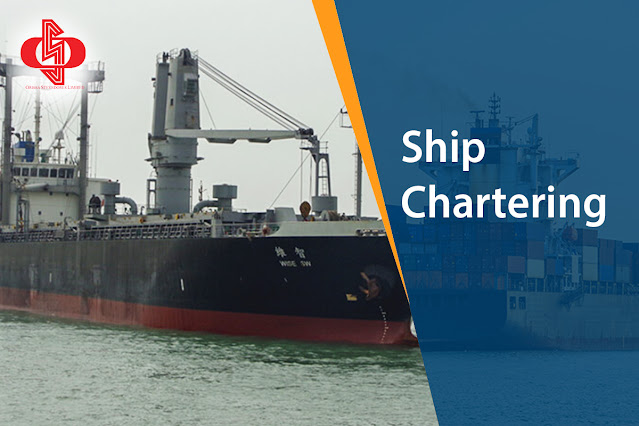Everything you need to know about ship chartering
Ship chartering is an essential process as it ensures that an organization’s cargoes get delivered safely in the most cost effective manner. In fact, it is essential for charterers to have an extensive comprehensive understanding of the essential aspects of chartering, as it equips them with insight to make strategic chartering decisions and negotiate for better charter parties. Therefore, here is a guide on how ship chartering works and the importance of it.
There
are three parties in the process of ship chartering:
The
ship-owner who owns the vessel being rented, the charterer who requires the
ship on rent, and the shipbroker who has helped to bring them together.
Let’s
take a quick look at the roles of each of these parties of ship chartering.
Renting
a ship is known as ship chartering and it begins with the ship-owner and a
second party entering into an agreement. In shipping parlance, this agreement
is known as a charter party.
The
party that rents out the ship is the ship-owner and the second party who is
taking the ship on rent is known as the charterer.
Ship-owners are usually
members of the regional chamber of shipping or the International Chamber of
Shipping (ICS). This global body is responsible for all regulatory and
operational issues to do with shipping. Legal issues that crop up in the
shipping business are also handled by the ICS.
Someone who wants to rent a
ship, either to transport cargo or passengers, is called a charterer. The cargo
may or may not belong to the charterer. The charterer may be transporting it on
behalf of a different party.
The charterer plans the ship’s voyage and the arrangements for the handling of cargo during loading and unloading. As such, he is responsible for the safety of the ship, its crew, and the cargo.
Like all other brokers, shipbrokers also help to identify the right customer for a ship-owner who wants to rent his ship or vice versa. For their services, they charge a fee or a commission to the ship-owner. The commission may be a percentage of the total freight paid to the ship-owner by the charterer.
In ship
chartering, all the parties involved should be aware of the various details
that go into the making of a successful charter party or fixture.
The
ship-owner, as well as the charterer, must be aware of the background of the
other, their financial standing, and business reputation.
Just as the ship-owner must
know the type of cargo that is to be carried on the ship and its date of
sailing etc. the charterer should be aware of the cargo-handling capacity of
the vessel and its flag.




Comments
Post a Comment